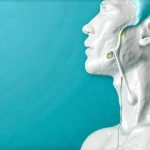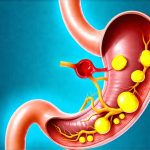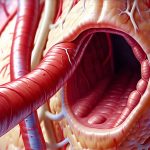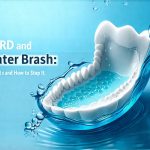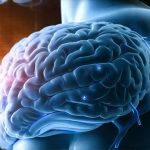Gastroesophageal reflux disease (GERD) is a surprisingly common condition affecting millions globally. It’s more than just occasional heartburn; it’s a chronic digestive disease where stomach acid frequently flows back into the esophagus, irritating its lining. This backward flow, known as acid reflux, can lead to a variety of uncomfortable symptoms, ranging from mild discomfort to significant pain and even long-term complications if left unmanaged. Understanding GERD is crucial for those experiencing these issues, not just to alleviate immediate symptoms but also to prevent potential health concerns down the line. However, what many people don’t realize is that GERD can sometimes manifest in unexpected ways – one of which is excessive saliva production, or hypersalivation.
This seemingly counterintuitive symptom—having too much saliva when you’re already dealing with acid rising from your stomach—can be incredibly confusing and concerning. Why would the body react to harsh stomach acids by increasing saliva? The answer lies in the complex interplay between the digestive system, nervous system responses, and the body’s attempt to neutralize acidity and protect itself. This article will delve into the connection between GERD and excessive saliva, exploring the underlying mechanisms, potential causes, associated symptoms, and what steps can be taken to manage this often-overlooked aspect of the condition. It’s important to note that this information is for educational purposes only and should not substitute professional medical advice.
The Link Between GERD and Hypersalivation
The connection between GERD and increased saliva production isn’t immediately obvious, but it stems from a natural protective reflex. When stomach acid reaches the esophagus, it triggers several physiological responses aimed at mitigating damage. One of these is saliva, which acts as a buffer to neutralize acid and protect the esophageal lining. The body essentially ramps up saliva production as a defensive mechanism against the corrosive effects of refluxed stomach acid. It’s not that GERD causes hypersalivation directly, but rather that it’s often a consequence of the body trying to cope with the discomfort and potential damage caused by GERD symptoms.
This isn’t simply a matter of the esophagus being irritated; the vagus nerve plays a significant role too. The vagus nerve is a cranial nerve responsible for numerous functions, including digestion and saliva production. Acid reflux can stimulate the vagus nerve, leading to increased salivary gland activity. Think of it as an overreaction – your body’s attempt at protection is sometimes excessive, resulting in more saliva than necessary. Furthermore, some individuals with GERD experience dysphagia (difficulty swallowing), which can also contribute to hypersalivation as the body tries to lubricate the throat and facilitate swallowing.
The presence of excess saliva doesn’t necessarily indicate a worsening of GERD itself, but it’s often a sign that reflux is occurring frequently enough to trigger these protective responses. It’s a signal from your body that something isn’t quite right and warrants attention. Ignoring this symptom can sometimes lead to other complications or make existing GERD symptoms more difficult to manage. K26 — Duodenal ulcer can have similar issues with acid production.
Understanding the Mechanisms at Play
The physiological processes behind hypersalivation in relation to GERD are intricate, involving several interacting systems. The primary driver is undoubtedly the acid-sensing cells within the esophagus itself. These cells detect changes in pH levels—specifically, the increase in acidity caused by refluxed stomach contents—and send signals to the brainstem. This triggers a cascade of events, ultimately leading to increased salivary gland activity. – The vagus nerve plays a critical role in this signaling pathway – it’s essentially the communication line between the esophagus and the salivary glands.
Another important factor is the lower esophageal sphincter (LES). The LES is a muscular ring that prevents stomach acid from flowing back into the esophagus. When the LES weakens or relaxes inappropriately, reflux occurs more frequently. This frequent reflux then stimulates the aforementioned protective mechanisms, including increased saliva production. Individuals with hiatal hernias, where part of the stomach protrudes through the diaphragm, are also more prone to GERD and subsequent hypersalivation because the weakened barrier contributes to easier acid reflux episodes. Upper GI Series can help visualize these issues.
Finally, psychological factors can sometimes exacerbate the problem. Stress and anxiety can increase vagal nerve activity, potentially leading to increased saliva production. This is why managing stress levels alongside GERD treatment is often recommended. The body’s response isn’t always purely physical; emotional state can significantly influence physiological functions. K51.90 — Ulcerative colitis is another condition that stress can exacerbate.
Identifying Accompanying Symptoms
Excessive salivation related to GERD rarely occurs in isolation. It’s usually accompanied by other, more typical GERD symptoms that help pinpoint the underlying issue. Being aware of these accompanying signs is crucial for accurate diagnosis and effective management. Some common indicators include: – Heartburn: A burning sensation in the chest, often after eating. – Regurgitation: The feeling of stomach acid backing up into your throat or mouth. – Dysphagia: Difficulty swallowing, sometimes accompanied by a choking sensation. – Chronic cough: Acid reflux can irritate the airways, leading to persistent coughing. – Hoarseness: Refluxed acid can inflame the vocal cords, causing voice changes.
It’s important to distinguish between hypersalivation due to GERD and other causes of excessive saliva production. Sometimes, increased salivation can be a symptom of other medical conditions (such as pregnancy or certain neurological disorders) or even a side effect of medication. If the excess saliva is accompanied by symptoms unrelated to digestion—like facial weakness or difficulty speaking – it’s essential to consult a healthcare professional immediately. A thorough evaluation will help determine the underlying cause and guide appropriate treatment. Stool Test for Occult Blood can rule out other digestive issues.
Managing Hypersalivation in GERD
Managing hypersalivation associated with GERD requires a multi-faceted approach that addresses both the symptoms and the underlying condition. The primary goal is to reduce acid reflux, which, in turn, should decrease the stimulation of saliva production. Lifestyle modifications are often the first line of defense: 1. Dietary Changes: Avoid trigger foods (e.g., fatty foods, spicy foods, caffeine, alcohol) that can worsen GERD symptoms. 2. Elevate Head of Bed: Raising the head of your bed by 6-8 inches can help prevent acid reflux during sleep. 3. Smaller, More Frequent Meals: Eating smaller portions throughout the day instead of large meals can reduce pressure on the LES. 4. Weight Management: Losing weight if you are overweight or obese can significantly improve GERD symptoms.
Over-the-counter medications like antacids can provide temporary relief from heartburn and acid reflux, but they don’t address the underlying cause. Proton pump inhibitors (PPIs) and H2 receptor antagonists, available by prescription, are more effective at reducing stomach acid production and should be considered if lifestyle changes aren’t sufficient. It’s crucial to consult with a doctor before starting any medication regimen. For managing the excess saliva itself, simple strategies like frequently swallowing or sucking on sugar-free hard candies can provide temporary relief. However, these are merely symptomatic treatments and don’t address the root cause of the problem – GERD. K21.9 — GERD without esophagitis outlines treatment options for milder cases. Understanding your specific type of GERD is important for effective management. Colonic Transit Test can help differentiate between GERD and other digestive disorders, as well as assess gut motility. Ultimately, effective management of GERD is the key to reducing hypersalivation and improving overall quality of life. K37 — Appendicitis can sometimes present with similar abdominal discomfort, so proper diagnosis is crucial.


